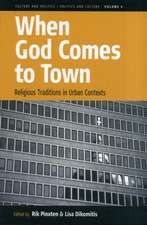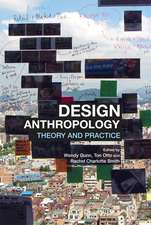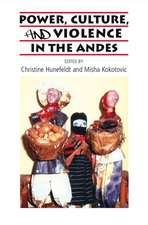Economy's Tension
Autor Stephen Gudemanen Limba Engleză Paperback – 28 oct 2012
| Toate formatele și edițiile | Preț | Express |
|---|---|---|
| Paperback (1) | 221.49 lei 43-57 zile | |
| BERGHAHN BOOKS INC – 28 oct 2012 | 221.49 lei 43-57 zile | |
| Hardback (1) | 746.94 lei 43-57 zile | |
| BERGHAHN BOOKS INC – 7 mai 2008 | 746.94 lei 43-57 zile |
Preț: 221.49 lei
Nou
Puncte Express: 332
Preț estimativ în valută:
42.38€ • 44.37$ • 35.07£
42.38€ • 44.37$ • 35.07£
Carte tipărită la comandă
Livrare economică 07-21 aprilie
Preluare comenzi: 021 569.72.76
Specificații
ISBN-13: 9780857457882
ISBN-10: 0857457888
Pagini: 196
Dimensiuni: 154 x 228 x 14 mm
Greutate: 0.27 kg
Editura: BERGHAHN BOOKS INC
ISBN-10: 0857457888
Pagini: 196
Dimensiuni: 154 x 228 x 14 mm
Greutate: 0.27 kg
Editura: BERGHAHN BOOKS INC
Notă biografică
Stephen Gudeman received his PhD in Anthropology from Cambridge University and an M.B.A. from Harvard Business School. He is Professor of Anthropology at the University of Minnesota and has carried out fieldwork in Panama, Colombia, Guatemala and Cuba. He works at the intersection of anthropology and economics. His books include The Anthropology of Economy (Blackwell), Conversations in Colombia, with Alberto Rivera (Cambridge UP), Economics as Culture (Routledge), and The Demise of a Rural Economy (Routledge).
Cuprins
Acknowledgements Chapter 1. Models, Mutuality and Trade Chapter 2. Exchange as Mutuality Chapter 3. Trade's Reason Chapter 4. Property and Base Chapter 5. Contingency or Necessity? The Dialectic of Practices Chapter 6. Making Money Chapter 7. Seeking a Balance Tables Table I: Dialectics in Economy Table II: Economic Processes Table III: Market Distribution Bibliography Index
Recenzii
"As well as containing stimulating arguments interspersed with engaging ethnographic examples, this book is admirably lucid in style. Few other anthropologists have such a grasp of [economic] theory, and in the present work he illuminates not only the tension between community and market, but also that between anthropology and economics." * JRAI "A clear and compelling account of the symbiotic relationship between the market and the 'base' of mutual relationships that normally empower as well as constrain the market, the tension of the title. Stephen Gudeman convincingly argues the necessity of this tension, not only for economic sanity but for economic 'progress' as it is conventionally defined. This book is must reading for social scientists, particularly for economists." * Stephen Marglin, Harvard University, and author of The Dismal Science: How Thinking Like an Economist Undermines Community "The work represents a significant contribution by a distinguished economic anthropologist who has done much to shape the subdiscipline in recent decades. The author's command of economic theory and issues is impressive, perhaps greater than that of any anthropologist working in the area today." * Mark Moberg, University of South Alabama "This book is a breath of fresh air in the arid field of economics. It articulates a humane perspective on the economy with notions that matter for how we read the economic lives we are living. The book is a must for anyone who needs or wants to open the eyes for the full range of values that constitute economic processes. I learned a lot from the studying it." * Arjo Klamer, Erasmus University "Economy's Tension is a call for a cultural shift in the way we think about the economy. Gudeman focuses on the conflict between 'mutuality' and 'markets,' that is between the meaning humans seek in community and that embodied in the 'price fetishism' that underpins market rationality. But Gudeman's highly readable and intellectually broad account is much more than a post-Marxist cultural critique. He goes beyond the oft-heard critique of global neoliberalism to propose a deeper shift in economic thought. This book is an important cultural reading of twenty-first-century capitalism that will be of much interest to social scientists of all disciplines." * William Milberg, New School for Social Research "Gudeman makes a sterling effort in organising diverse concepts and theories into a coherent body of knowledge. In addition, the strength of the book lies in its elegant shifts between the general and particular. Highly abstract thoughts are tied to particular ethnographic examples that illustrate and explain the author's argument. This is a most successful strategy which helps the reader to understand thoughts which are far from trivial." * Durham Anthropology Journal















